PROPOSAL
PROPOSAL
Neil deGrasse Tyson is an astrophysicist, the current director of the Hayden Planetarium in New York, and an author dedicated to communicating scientific ideas to the public. Tyson used to host a science program, Nova Science Now, on PBS, and he continues to be a guest on The Daily Show, Jeopardy, and other programs. Tyson has also recently appeared as the host of the new version of the show Cosmos. In this proposal, which appeared in Natural History magazine in 2007, he considers what might happen if humans felt a little less significant.
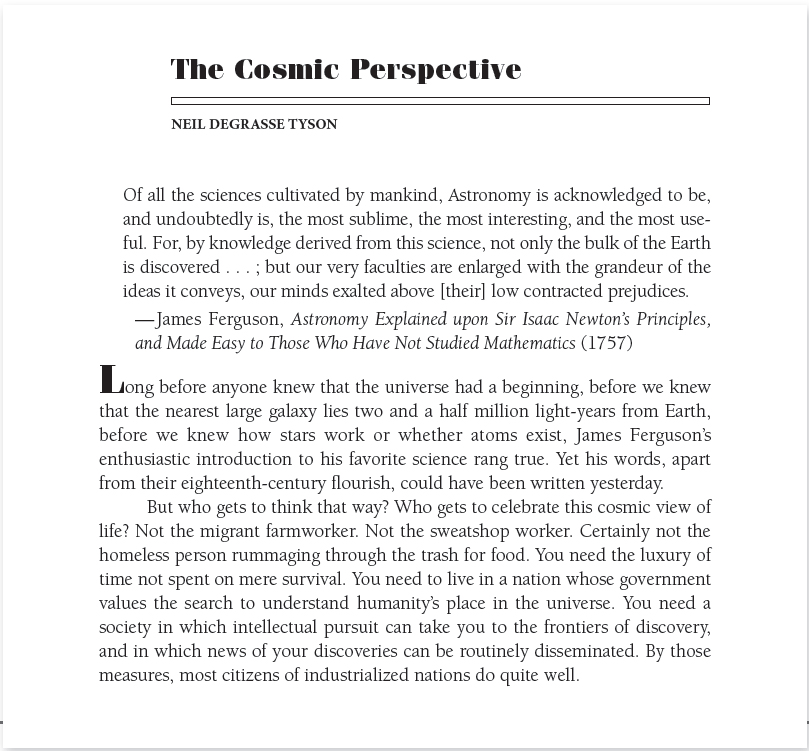
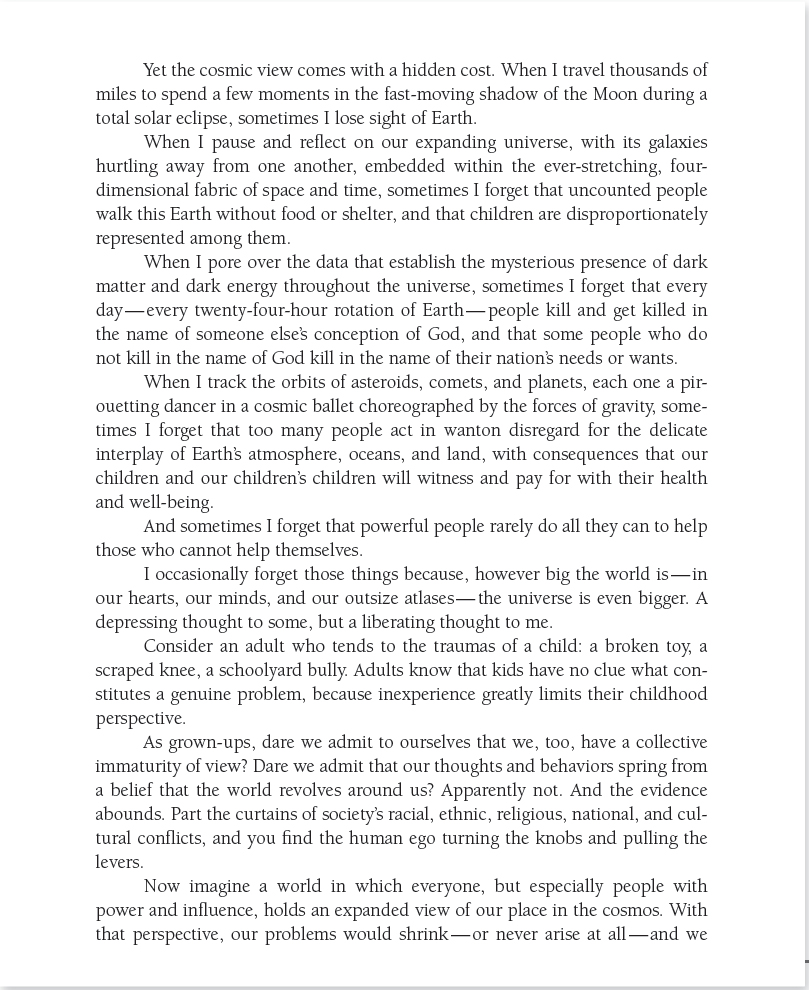
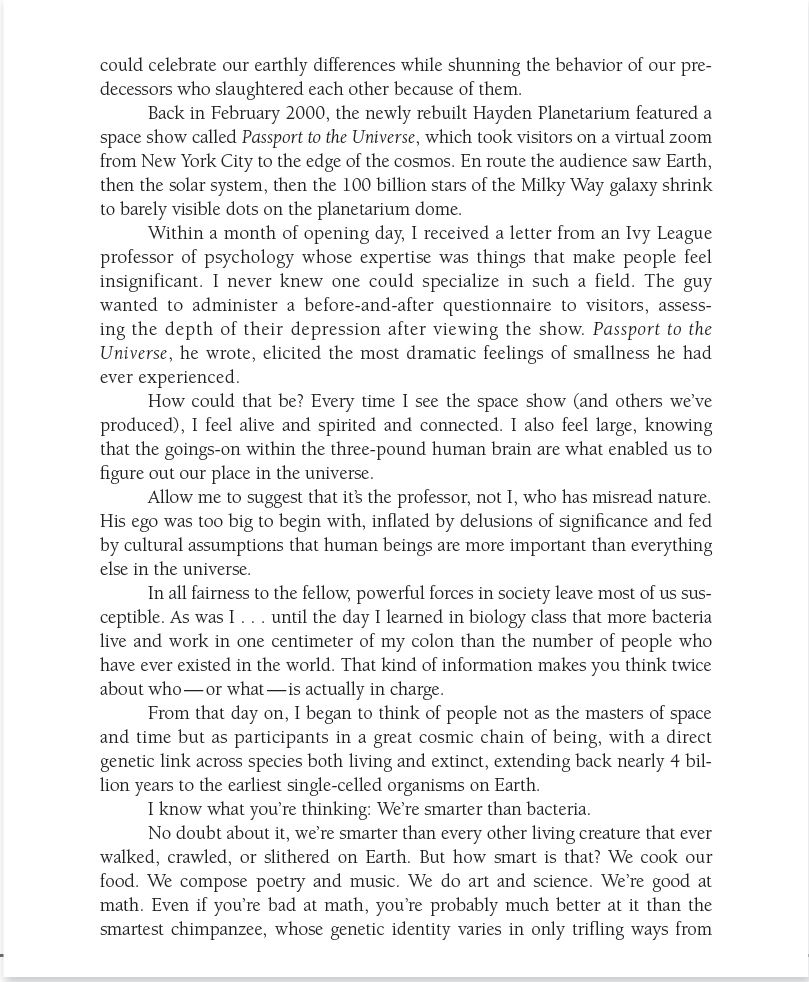
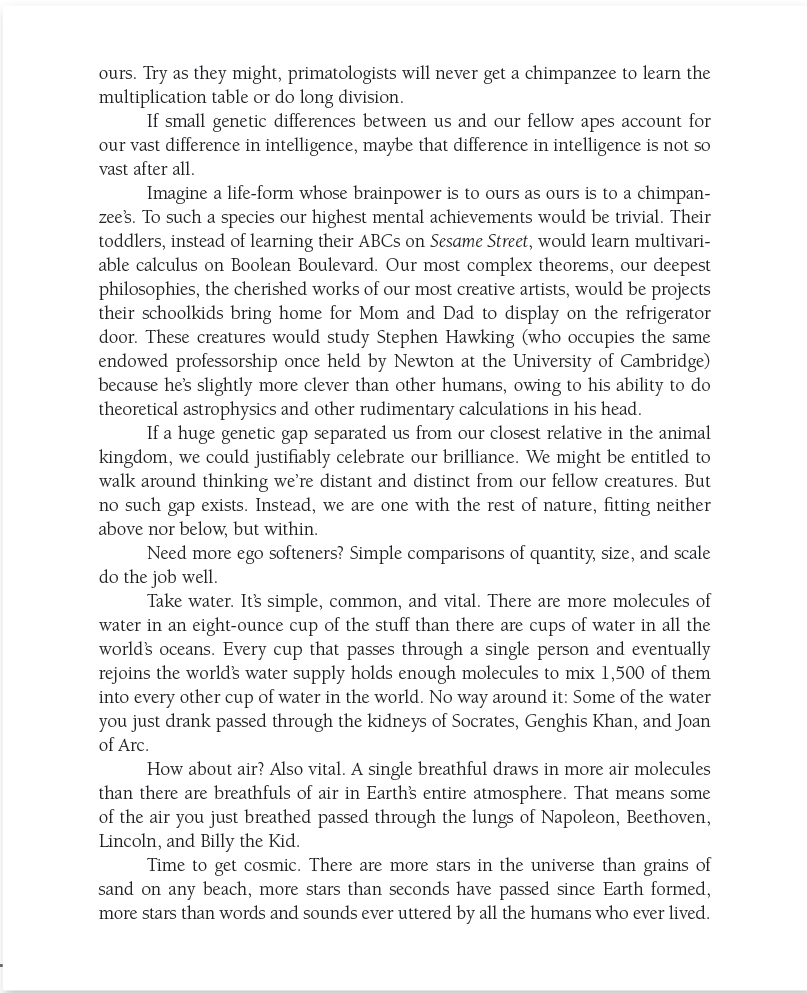
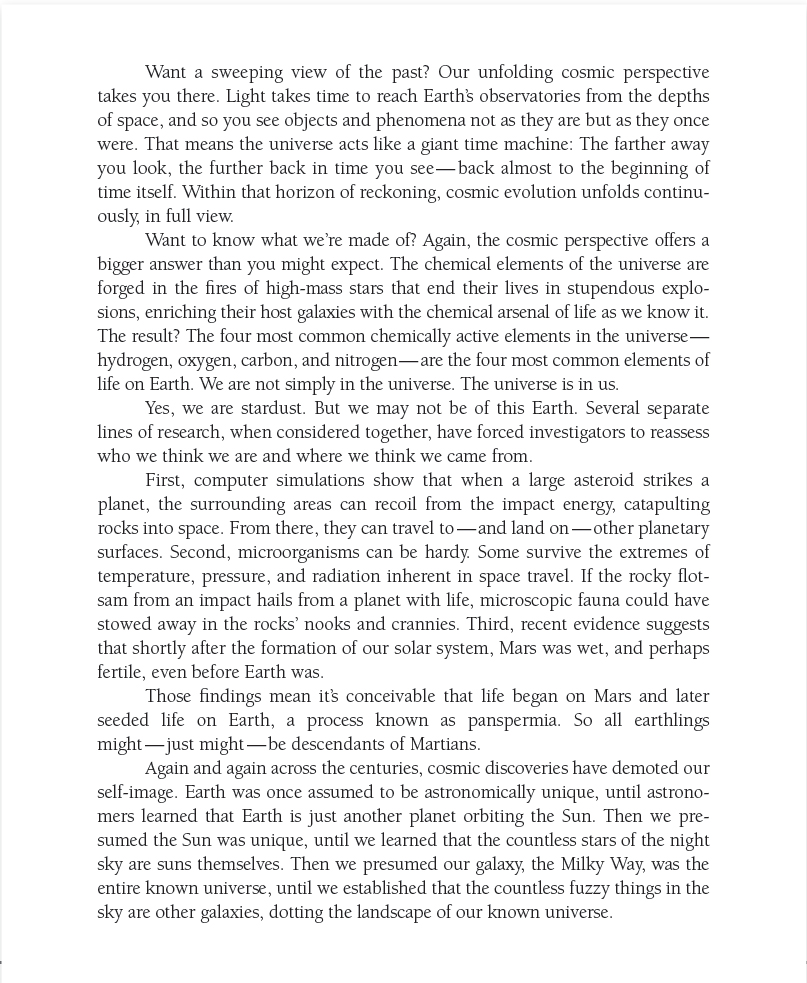
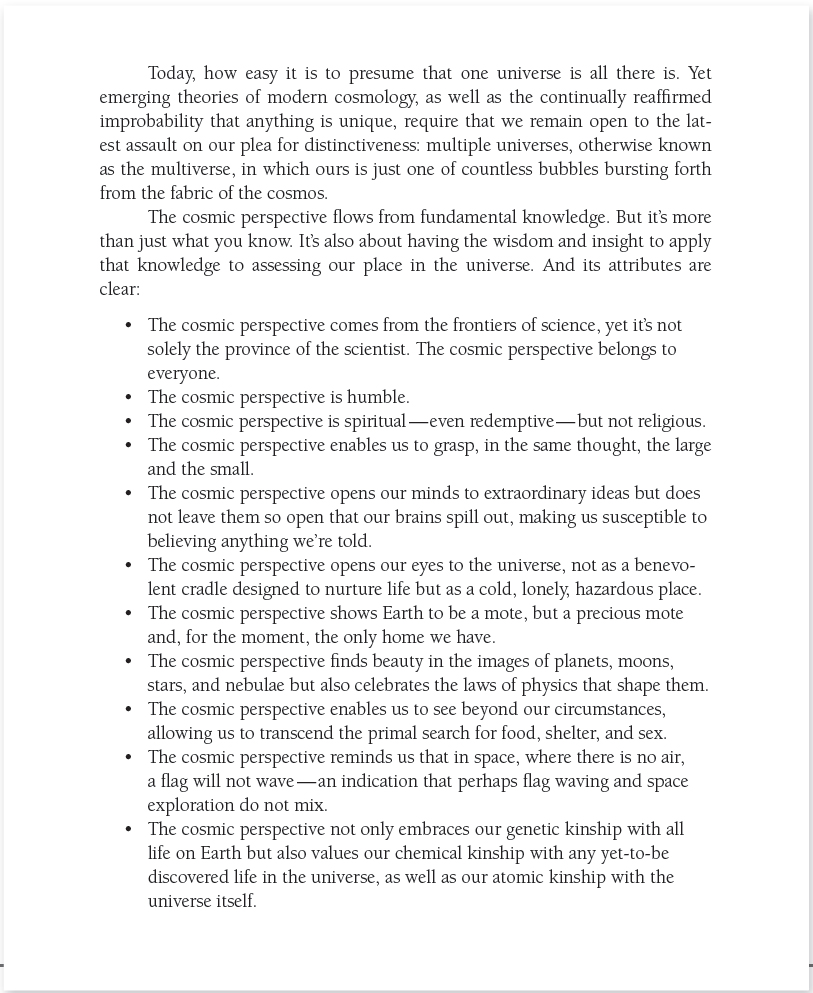
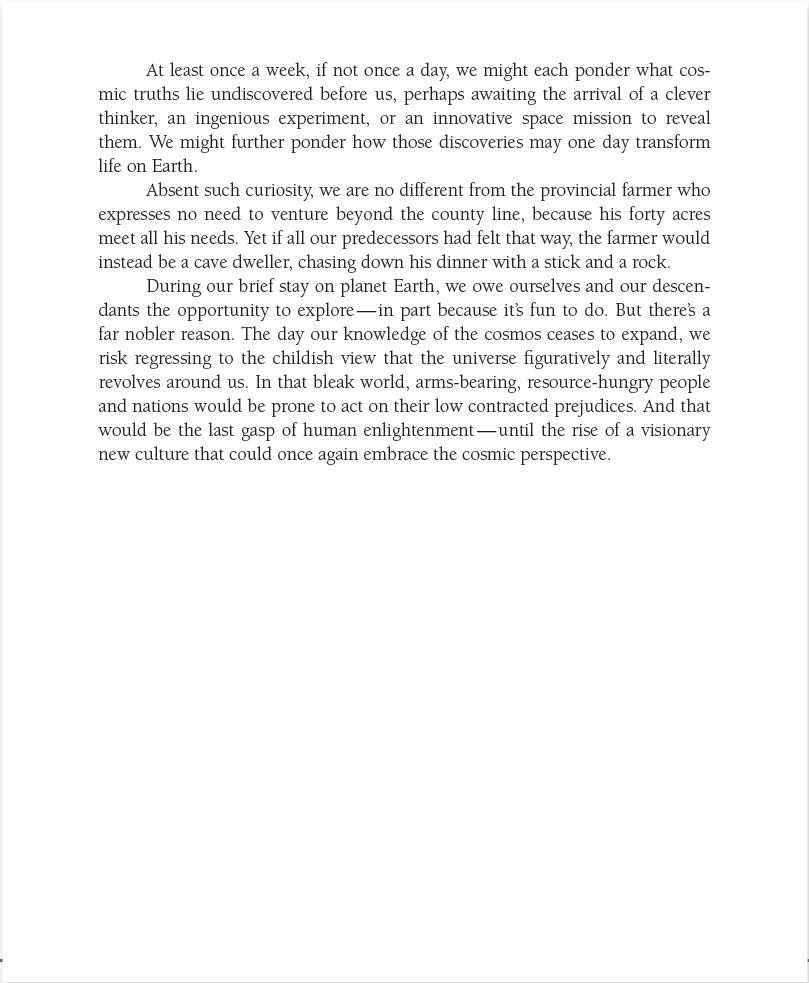
Reading the Genre
Question
1. Tyson offers a series of “ego softeners” in this proposal. How important is it to the success of this proposal for Tyson to soften the audience’s egos, without shattering them or making readers defensive? How effectively does he do so?
Question
2. Does Tyson consider counterarguments in this essay? Suggest some counterarguments to his proposal. What do we lose by embracing the cosmic perspective? (For more on counterpoints, see "Find counterarguments", "Creating a structure", "Address counterpoints when necessary, not in a separate section".)
Question
3. WRITING: Identify a current problem or crisis in your community that a “cosmic perspective” could help solve. Propose how the public could be encouraged and educated to take such a perspective, and how that new perspective might lead to tangible actions to solve the problem.
Question
4. MULTIMODALITY — COSMIC CALENDAR: Look at the “cosmic perspective” that Tyson outlines at the end of his proposal. He also suggests, “At least once a week, if not once a day, we might each ponder what cosmic truths lie undiscovered before us.” Create a calendar that is at least one month long, and on every day in your calendar, add a fact or a question, a statistic or an image, that could help us to develop a more cosmic perspective.